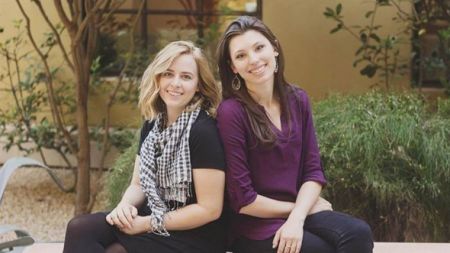Jewish Group Supports Christian Artists Suing Ariz. City Forcing Them to Make Gay Wedding Invitations

A Jewish organization has filed a brief in support of two evangelical Christian artists suing an Arizona city over an ordinance that would compel them to make gay wedding invitations.
Joanna Duka and Breanna Koski, owners of Brush & Nib Studio, filed an appeal with the Arizona Supreme Court in July over a Phoenix ordinance that compels them to provide wedding invitations for same-sex weddings or face potential jail time.
The Jewish Coalition for Religious Liberty filed the amicus brief last week, arguing that the Constitution's Free Exercise Clause applies "to secular vocations as well."
"Most religious adherents will work in the secular marketplace rather than religious callings. However, for religious Jews, religious beliefs and requirements are infused in every aspect of their lives including their professional lives," read the brief.
"If the government demands otherwise, they will leave their businesses before they will dishonor God and violate His commandments. They believe they would be engaging in sin if they failed to follow the Torah in their professional lives."
The brief cited the 2015 U.S. Supreme Court's Obergefell v. Hodges, the 5-4 decision that struck down state-level gay marriage bans, but which also acknowledged that the beliefs of same-sex marriage opponents should not be "disparaged" by the ruling.
"... religious beliefs about traditional marriage, which, as this Court expressly recognized in Obergefell, are 'based on decent and honorable religious or philosophical premises' that are central to the lives of decent and honorable people," continued the JCRL's brief.
"Those religious beliefs, which for Petitioners are an integral part of their status and personal identity as Christians, cannot be divorced from the expressive conduct that gives voice to those beliefs."
In 2013, the city of Phoenix added a new ordinance titled "Discrimination in public accommodations," which bans discrimination "in places of public accommodation against any person because of race, color, religion, sex, national origin, marital status, sexual orientation, gender identity or expression, or disability."
Also called City Code Section § 18.4(B), the ordinance provided an exemption for religious organizations, but did not include businesses. Someone found guilty of violating the law could face up to six months in prison.
In May 2016, Duka and Koski filed suit against the ordinance. However, in September of that year, Arizona Superior Court Judge Karen A. Mullins rejected a request to block enforcement of the law.
"It is absurd to think that the fabricator of a wedding invitation for a same-sex couple has endorsed same-sex marriage merely by creating or printing that invitation," wrote Mullins.
"Moreover, there is nothing about the creative process itself, such as a flower or vine or the choice of a particular font or color, that conveys any pledge, endorsement, celebration, or other substantive mandated message by plaintiffs in regard to same-sex marriage."
Last October, Mullins again ruled against the artists, prompting them to appeal to the Court of Appeals. In June, a three-judge panel of that court ruled unanimously against them.
"Appellants have failed to prove that Section 18-4(B) substantially burdens their religious beliefs by requiring that they provide equal goods and services to same-sex couples. Appellants are not penalized for expressing their belief that their religion only recognizes the marriage of opposite-sex couples," read the panel's opinion.
"Nor are appellants penalized for refusing to create wedding-related merchandise as long as they equally refuse similar services to opposite-sex couples."
In July, Duka and Koski filed an appeal with the state supreme court, their petition asking the court "to clarify whether public accommodation laws trump free-speech and free-exercise rights, to correct the COA's narrow understanding of these important freedoms, and to align Arizona's jurisprudence with recent U.S. Supreme Court decisions."
Jonathan Scruggs, senior counsel with the Alliance Defending Freedom, which is representing Duka and Koski, said in a statement released in July that he believed the "government must allow artists to make their own decisions about which messages they will promote."
"Artists shouldn't be forced to create artwork contrary to their core convictions, and certainly not under threat of criminal fines and jail time," said Scruggs.
"Breanna and Joanna are happy to design custom art for all people; they simply object to being forced to pour their heart, soul, imagination, and talent into creating messages that violate their conscience."





















